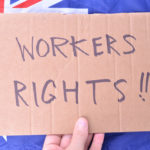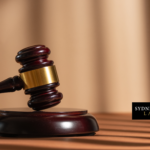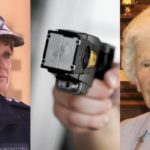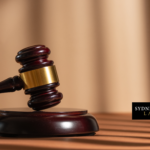‘The Slap’ – Would Criminal Charges Have Been Filed if it Happened in Australia?
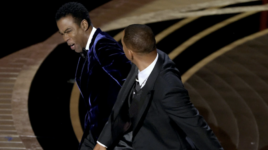
It’s the slap that has the world talking, debating, asking questions: Staged or unstaged? Justified or unjustified? Chauvinism at play or a family man just protecting his loved-one? A comedian just doing his job or a weasel that crossed the line?
In case you’ve been living on Neptune– Will Smith walked on the stage of the Academy Awards and slapped presenter Chris Rock earlier this week over a joke the former made about the latter’s partner, Jade Pinkett-Smith’s, bald head, saying he looks forward to her role in GI Jane 2.
Ms Pinkett-Smith suffers from alopecia, a medical condition which causes hair loss.
Will Smith then walked back and forcefully directed Chris Rock to ‘keep my wife’s name out of your fucking mouth’, twice.
Will Smith went on to accept the Oscar for Best Actor. During his acceptance speech, he apologised to everyone, except Chris Rock. He spoke about “love making you do crazy things”. He received a standing ovation. And then he went on to dance at the after parties.
His apology to Chris Rock came later the next day in an Instagram post.
By that time, the incident had gone viral across the world.
The apology
“I would like to publicly apologize to you, Chris,” Mr Smith wrote. “I was out of line and I was wrong. I am embarrassed and my actions were not indicative of the man I want to be.”
“Jokes at my expense are a part of the job, but a joke about Jada’s medical condition was too much for me to bear and I reacted emotionally”.
The latest in the story is that the Academy – the Hollywood organisation which hands out the Oscars – will take disciplinary action against Will Smith.
It has released a statement saying that, “Things unfolded in a way we could not have anticipate…. “While we would like to clarify that Mr. Smith was asked to leave the ceremony and refused, we also recognize we could have handled the situation differently.”
It has also confirmed that the incident will be discussed at the next meeting in mid-April.
No charges
The incident sparked a media frenzy, as well as worldwide debate.
For its part, the Los Angeles Police Department issued a formal statement to the effect that it is aware of the physical altercation, but that the victim, Chris Rock, declined to press charges.
The police decided, on that basis, not to file charges against Mr Smith.
For relatively minor crimes committed by one person against another in the United States, police departments will typically proceed in line with the alleged victim’s wishes when it comes to filing charges. In other words, police will bring criminal charges only if the alleged victim asks them to ‘press’ them.
The situation across Australia is quite different. While police will take statements and may even ask the alleged victim about their wishes, the policy of police forces across the nation is to file criminal charges in the event there appears to be sufficient evidence that a crime has been committed – whether that be an assault, robbery, kidnapping or any other ‘offence against the person’.
There is no question the actions of Mr Smith amount to an assault, unless of course there is evidence that Mr Rock consented to the ‘slap’.
So chances are that, if the incident had occurred on Australian shores, police would have brought charges against Mr Smith regardless of Mr Rock’s views.
Common assault
If the conduct had occurred in New South Wales, the charge that would likely have been brought is ‘common assault’.
This is an offence under section 61 of the Crimes Act 1900 (NSW) which can occur without any touching at all; just causing another person to ‘apprehend immediate and unlawful violence’ is enough.
Examples may include raising a fist at another in anger, or threatening to hurt or kill them in their immediate presence.
A common assault can also take place through unauthorised touching, even if the other person is not fearful for their immediate personal safety. This is called ‘battery’, and can happen even if no injuries are inflicted, or the injuries are very minor.
The maximum penalty for common assault is two years’ imprisonment and/or a fine of $5,500.
Toxic masculinity
But back to the incident.
Many consider Smith’s actions entirely justified – he was standing up for his wife, as good men are meant to do. It’s reported that such is the view taken by one of Smith’s children.
Some believe the whole scenario was completely contrived. These, after all, are actors.
Others say violence should never be seen as acceptable, while many have described Mr Smith’s actions as chauvinistic – that Mrs Pinkett-Smith, like other women, should be able to make the decision about whether or not to ‘stand up for herself’ in these types of situations, especially where there is no threat of direct physical violence.
The Covid-10 pandemic granted the acting industry something of a hiatus after the very public incarceration of Harvey Weinstein for sexual assault.
And while Hollywood has promised to clean up its act in terms of everything relating to #metoo, from more equitable pay to putting in place initiatives which will further protect women from predators, now it is facing the issue of male violence.
Of course, violence may sometimes be considered necessary in extreme circumstances or in situations requiring self-defence, but it’s very hard to justify over a flippant comment made by a comedian which many people considered to be a joke in poor taste anyway.
The point is, one of Hollywood’s biggest stars had the opportunity to display something other than toxic masculinity when confronted with an issue which clearly bothered him.
Words can be much, much more effective than a ‘slap’, particularly when they are chosen wisely. Smith had a worldwide audience – it was his moment to show us that men, perhaps Hollywood too, have moved past violence for the sake of it, and are able to find other ways to communicate or process their emotions.



